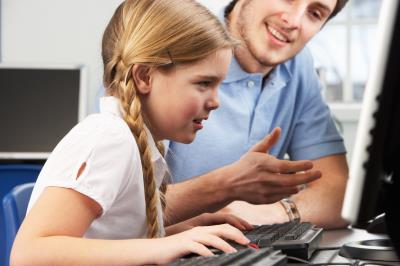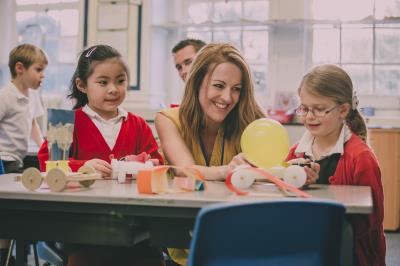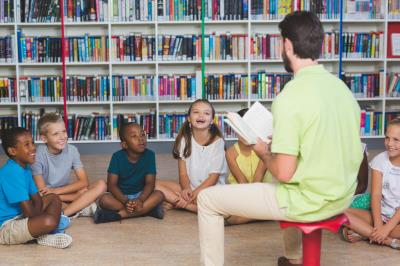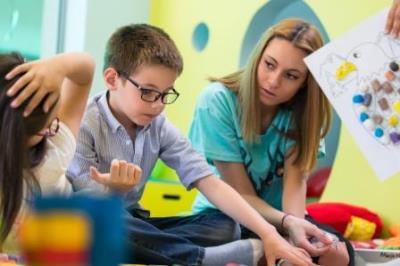Unit 1: Schools and Colleges as organisations
- The structure of education from early years to post-compulsory education
- How schools and colleges are organised in terms of roles and responsibilities
- Teamwork in schools and colleges
- Educational ethos, mission, aims and values
Unit 2: Support health and safety in a learning environment
- Plan and provide environments that support children and young people's health and safety
- Recognise and manage risks to health, safety and security in a learning environment or during off-site visits
- Support children and young people to assess and manage risk for themselves
- Appropriate responses to accidents, incidents, emergencies and illness in the learning environment and during off-site visits
Unit 3: Understand how to safeguard children and young people
- Legislation, guidelines, policies and procedures for safeguarding children and young people
- How to work in partnership with other organisations to safeguard children and young people
- The need to ensure children and young people's safety and protection in the learning environment
- How to respond to evidence or concerns that a child or young person has been abused or harmed
- How to work with children and young people to support their well-being
Unit 4: Develop professional relationships with children, young people and adults
- The principles of developing positive relationships with children, young people and adults
- Legislation, policies and procedures for confidentiality and sharing information, including data protection
- Develop professional relationships with children and young people
- Communicate with children and young people
- Develop professional relationships with adults
- Support children and young people in developing relationships
- Support inclusion and inclusive practices in work with children and young people
Unit 5: Understand how children and young people develop
- The expected pattern of development for children and young people from birth to 19 years
- The factors that influence children and young people's development and how these affect practice
- Monitor children and young people's development and interventions that should take place if this is not following the expected pattern
Unit 6: Support positive behaviour in children and young people
- Policies and procedures for promoting children and young people's positive behaviour in a learning environment
- Promote positive behaviour
- Manage behaviour that challenges in a learning environment
Unit 7: Support children and young people during learning activities
- Contribute to planning learning activities
- Prepare for learning activities
- Support learning activities
- Observe and report on learner participation and progress
- Contribute to the evaluation of learning activities
Unit 8: Support English and Maths skills
- Identify learner needs for English and Maths support
- Provide English support to help learners access teaching and learning
- Provide Maths support to help learners access teaching and learning
Unit 9: Support the use of ICT in the learning environment
- Policy and procedures for the use of ICT for teaching and learning
- Prepare ICT resources for use in teaching and learning
- Support the use of ICT for teaching and learning
Unit 10: Support assessment for learning
- Purpose and characteristics of assessment for learning
- Use assessment strategies to promote learning
- Support learners in reviewing their learning strategies and achievements
- Contribute to reviewing assessment for learning
- Maintain learner records
Unit 11: Engage in personal and professional development
- What is required for competence in own work role
- Reflect on organisational practice
- Evaluate own performance
- Agree a personal development plan
- Use learning opportunities and reflective practices to contribute to personal development
Unit 12: Support children and young people's speech, language and communication
- The importance of speech, language, and communication for children and young people's overall development
- The role of support staff when supporting speech, language and communication development in the learning environment
- Provide support for the speech, language and communication development of children and young people in the learning environment
- Contribute to maintaining a positive environment that supports speech, language and communication
Unit 13: Understand how to support bilingual learners
- Contribute to the assessment of bilingual learners
- Support bilingual learners to access the curriculum
Unit 14: Understand how to support learning of children and young people with special educational needs and disabilities
- The principles of inclusive practice and the rights of disabled children and young people and those with special educational needs
- Obtain information about individual needs, capabilities and interests of disabled children and young people, and those with special educational needs
- Special educational needs of children and young people with cognition and learning needs
- Special educational needs of children and young people with sensory and/or physical needs
- The kinds of strategies needed to support children and young people with special educational needs and disabilities
Unit 15: Support children and young people during transitions
- The range and impact of transitions that children and young people may experience
- Recognise and respond to transitions in children and young people's lives
- Support children and young people to manage transition in their lives
Unit 16: Support the role of play, leisure and extra-curricular activities for children and young people
- The nature and importance of play and leisure
- Own role in relation to the requirements of play and leisure activities
- Balance risk and challenge with the benefits of the play and leisure opportunity










